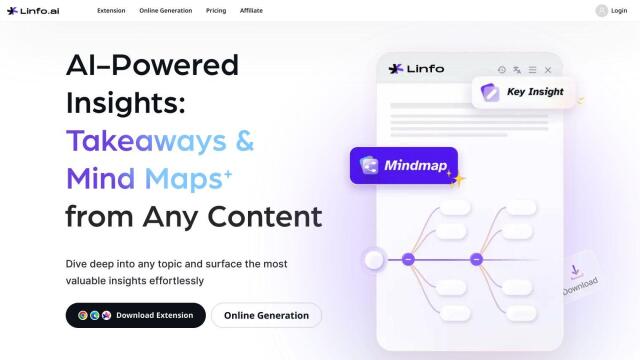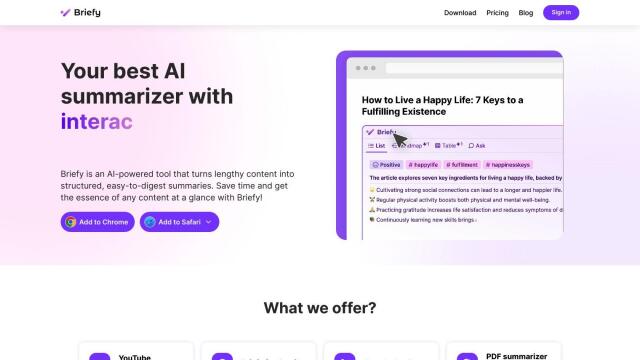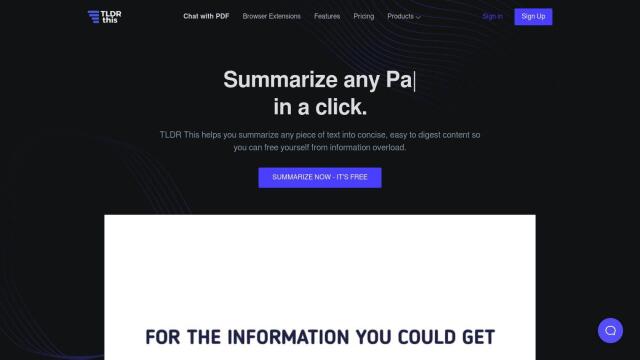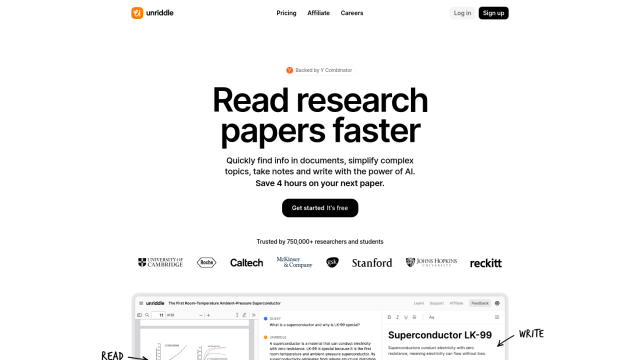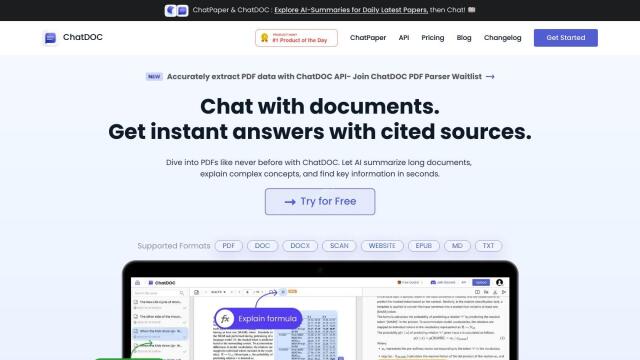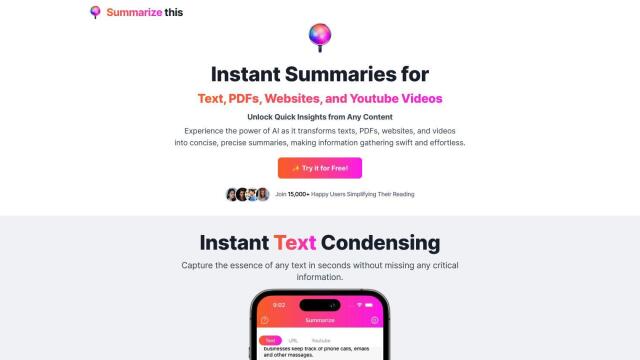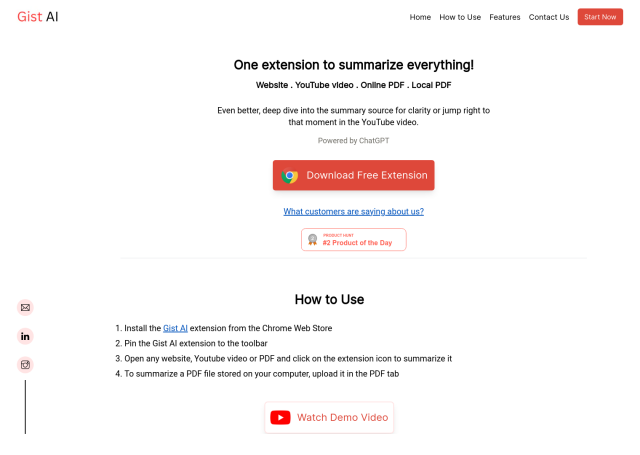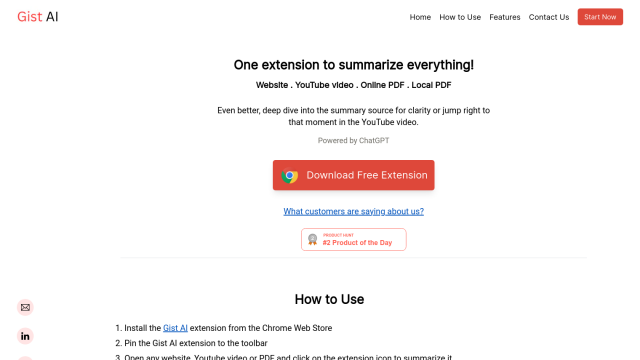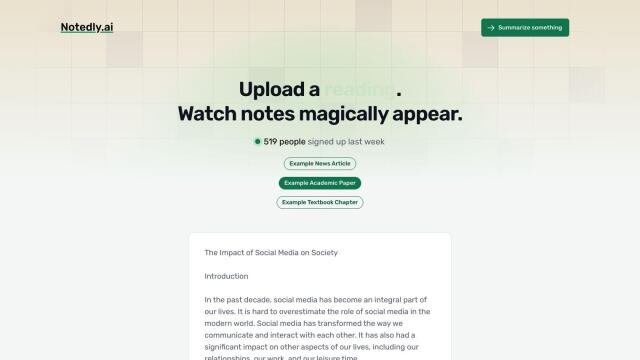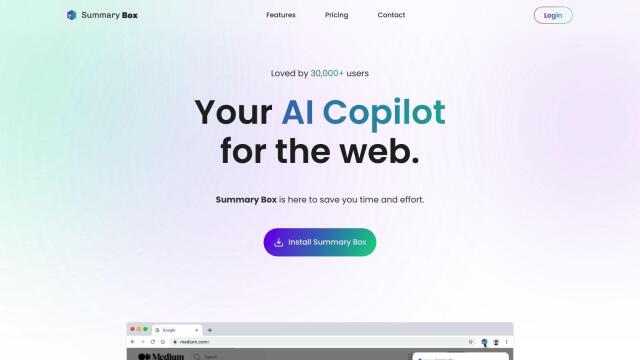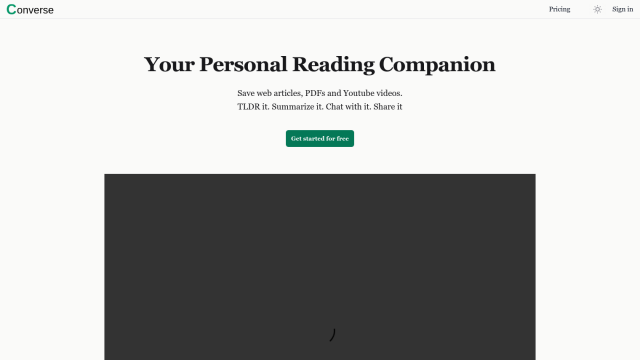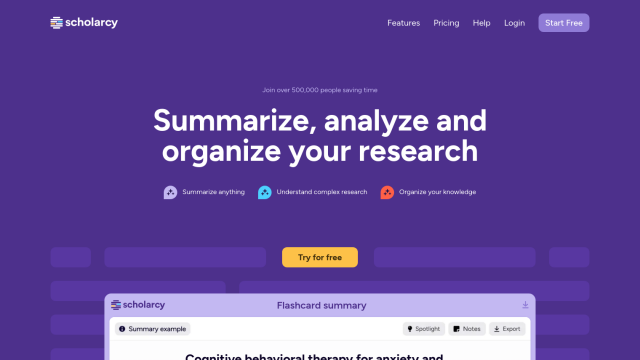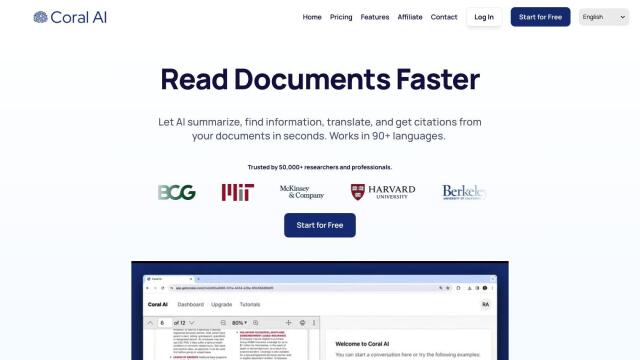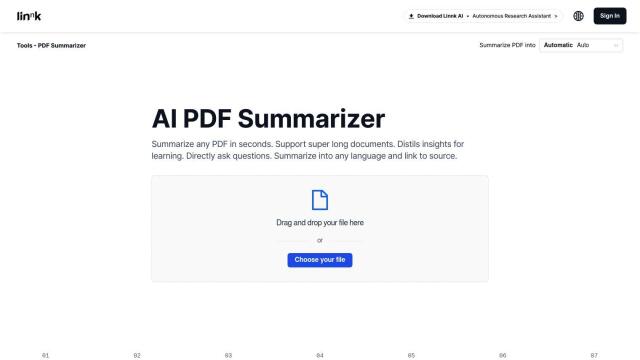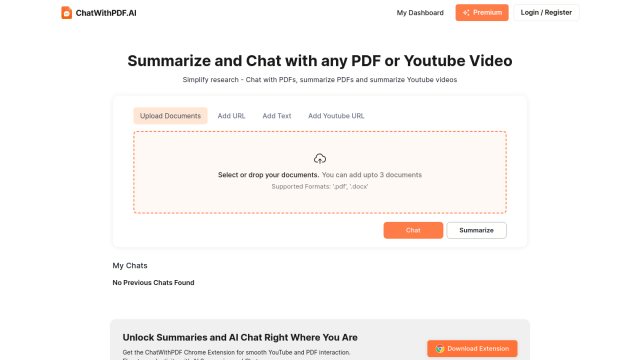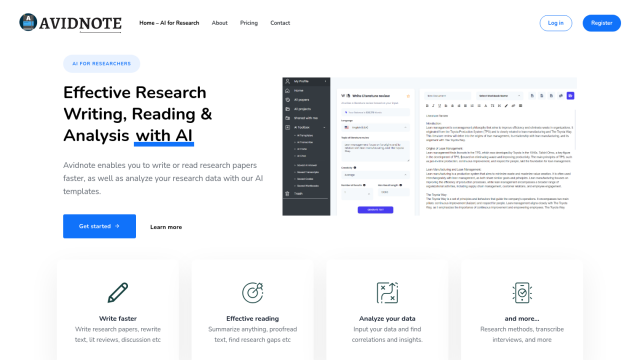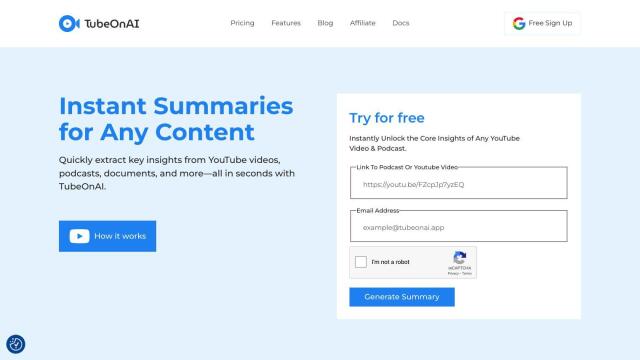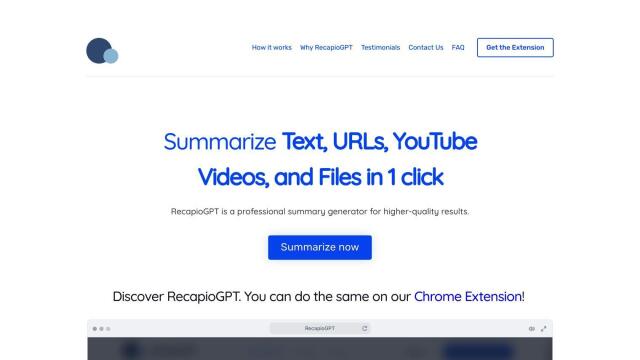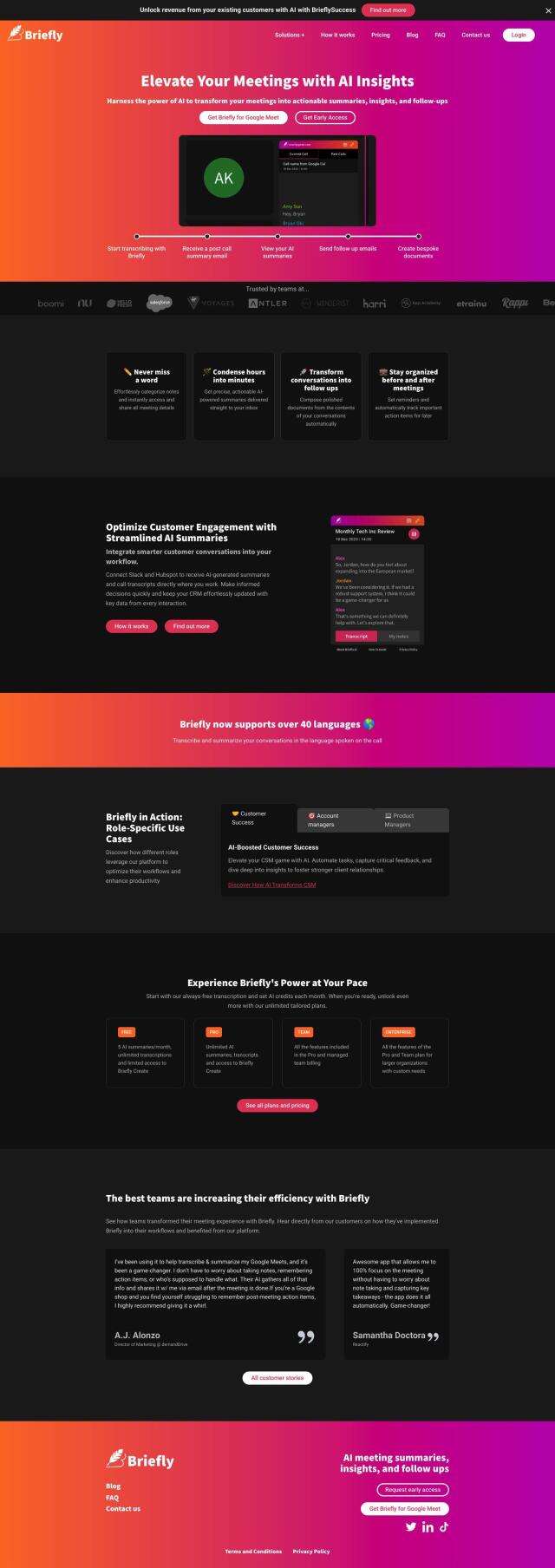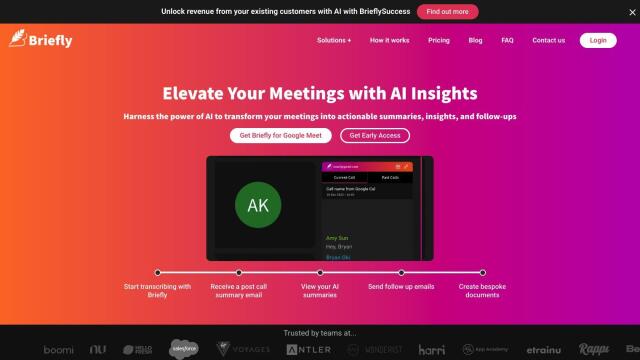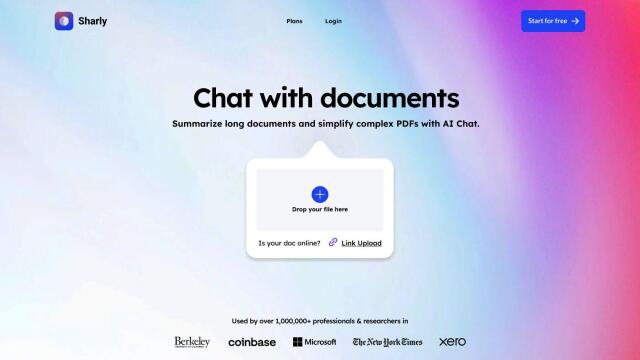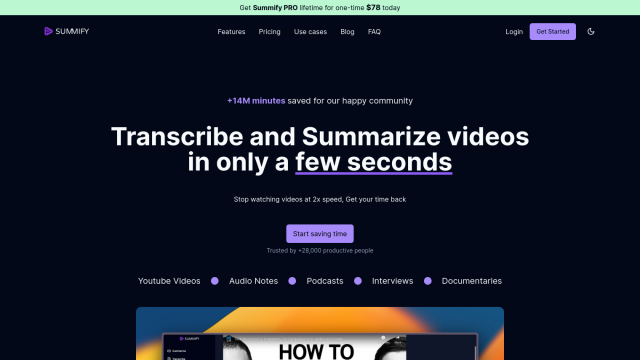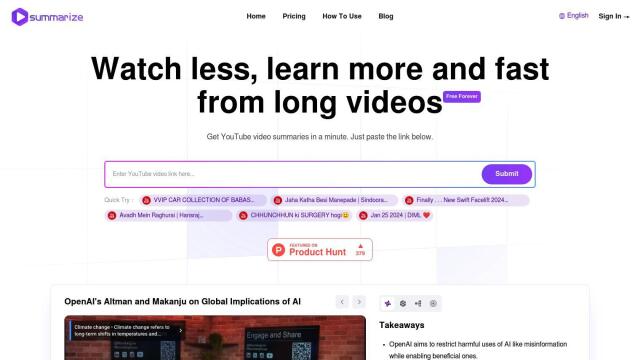
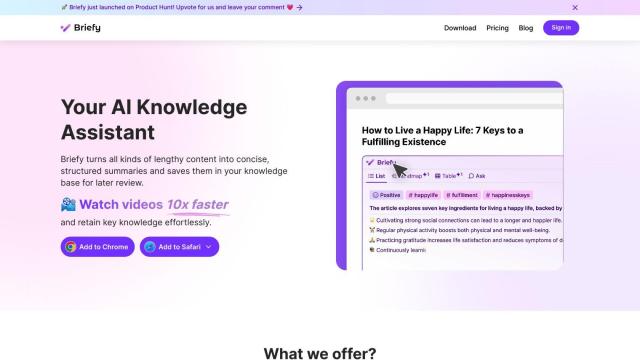
Briefy
If you're looking for something similar to Linfo, Briefy is another good option. It generates structured and easily digestible summaries of long-form content like YouTube videos, emails, PDFs and articles. Briefy's features include chapter-by-chapter video summarization, email thread summarization and PDF summarization in table and mind map formats, so you can quickly get up to speed on content. It also has a personal knowledge base for storing and reviewing summaries and supports multiple languages. Briefy is available as a Chrome and Safari extension, so it's easy to build into your workflow.


Otio
Another good option is Otio, an AI-native workspace for research that includes tools to help you summarize and otherwise interact with your documents. With automated summarization, AI-boosted text editing and support for more than 20 languages, Otio can help you get new ideas out of research and organize documents to get the most out of them. It's a good tool for researchers, students and analysts who have to wrestle with long documents and produce first drafts fast.

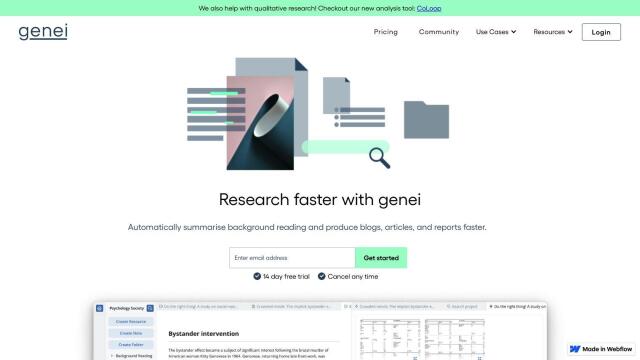
genei
Genei is another option. This AI-powered research and note-taking tool can summarize articles, analyze research and extract key information. You can organize documents, extract keywords and perform semantic and query-based searches. Genei's features are designed for professional writers, academics and content creators who want to accelerate their research and writing.

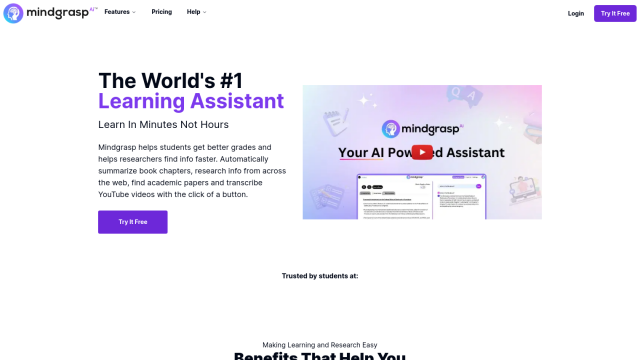
Mindgrasp
If you're looking for a more elaborate learning assistant, Mindgrasp could be what you're looking for. It uses AI technology to generate notes, summaries, flashcards and quizzes from a variety of sources, including PDFs, YouTube videos and webinars. Mindgrasp can save you time and increase your productivity by generating detailed notes and summaries rapidly, making it a good tool for students, professionals and businesses.

